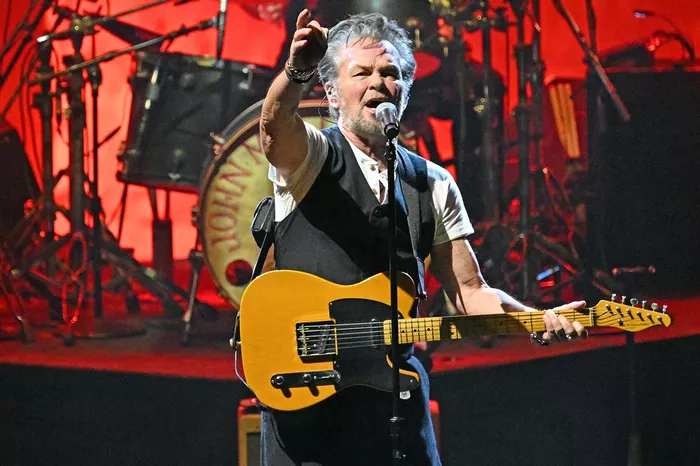Renowned for his heartland rock legacy, John Mellencamp has recently ignited a discourse about the landscape of modern music and society at large. The 71-year-old singer-songwriter made a thought-provoking appearance on Bill Maher’s Club Random podcast, sparking a multifaceted conversation about hip-hop, racism, and artistic expression. Mellencamp’s perspective, while unconventional and challenging, offers a lens through which to examine the intricate interplay of music, race, and societal progress.
The podcast episode delved into Mellencamp’s reflections on his formative years, during which he performed alongside Black and white band members and observed the racial injustices they faced on the road. This introspection led him to consider the state of the music industry in the present day, prompting him to recall his collaboration with Chuck D of Public Enemy on the track “Cuttin’ Heads,” the title song of his 2001 album.
In a moment of candidness, Mellencamp discussed his reservations about certain aspects of rap music. He expressed his concerns about the use of derogatory language, particularly the N-word, and its implications on culture and society. Mellencamp’s stance raises valid questions about the commodification of cultural and social struggles for financial gain, particularly when these struggles are packaged for consumption by audiences outside the affected communities. He posed a challenge to the ethics of profiting from the very issues that marginalized groups have historically fought against.
Mellencamp’s collaboration with Chuck D bore witness to the complexities of grappling with sensitive subject matter within music. The song in question tackled the use of the N-word, an inherently loaded term, and its evolving significance in contemporary vernacular. Chuck D’s lyrics, “Die n word die,” addressed the complexities surrounding the term and its historical baggage. This collaboration underscores the potential of art to serve as a catalyst for introspection and dialogue, even if the subject matter is contentious.
While Mellencamp’s opinions on rap music and its cultural implications are firm, his conversation with Maher further explored broader issues related to racial inequality and societal progress. He pointed out the continued struggles faced by Black individuals in the United States, recounting a personal tragedy involving his son’s friend who was a victim of racial profiling and violence. This tragedy served as a stark reminder of the persistent challenges that need to be addressed within society.
The artist also shared insights into a song he chose not to record due to its potentially offensive content. The song, titled “From the F—ing Cotton Fields to the Playing Fields,” highlighted the disturbing historical link between racial oppression and entertainment. This contemplation exemplifies Mellencamp’s commitment to grappling with complex topics, even if they are uncomfortable or unpalatable.
Mellencamp’s candidness extended to his views on the role of entertainment in shaping cultural perceptions. He noted that white audiences have historically embraced entertainment provided by Black artists, often without considering the broader social context. This raises questions about the responsibility of artists and audiences to engage thoughtfully with the content they consume and the narratives they perpetuate.
During the podcast, Mellencamp engaged in a spirited debate with Maher about the extent of progress made in combatting systemic racism. While Maher advocated for an optimistic view of societal evolution, Mellencamp voiced a more cautious perspective. This exchange underscores the complexities of evaluating progress and the importance of acknowledging ongoing challenges.
Notably, Mellencamp’s insights are not limited to musical discourse. He has a history of advocating for social justice and confronting discrimination. His decision to sever ties with Columbia Records in 2001 due to racist comments made by an executive demonstrates his commitment to principles beyond music. Mellencamp’s activism speaks to his larger worldview, where artistic integrity and ethical responsibility intersect.
In the coming weeks, Mellencamp is set to headline the Farm Aid festival alongside other music legends. This event resonates deeply with his commitment to supporting small family farmers and addressing the challenges they face. Mellencamp’s participation in this event underscores his dedication to advocating for societal change beyond the realm of music.
In conclusion, John Mellencamp’s recent podcast appearance has sparked conversations that transcend the boundaries of music. His candid reflections on rap music, race, and social dynamics have prompted critical examination of the ethical and cultural dimensions of artistic expression. While his perspectives may be polarizing, they serve as a reminder that music and art have the power to provoke introspection, stimulate dialogue, and prompt societal change.

